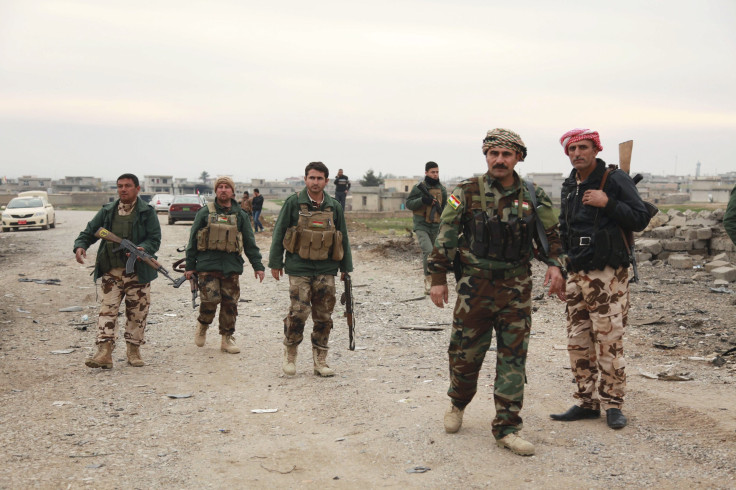ISIS Mountain Sinjar Siege Broken, Hundreds Of People Freed: Iraqi Kurds

Iraqi Kurds said Thursday that they have broken a siege on Sinjar mountain by the Islamic State group and freed hundreds of people, including Yazidi civilians and fighters, who were trapped there for months.
The Kurdish forces managed to fight their way to Iraq's Sinjar mountain during a two-day attack in the region, involving 8,000 peshmerga fighters and some of the powerful U.S.-led coalition airstrikes, Agence France-Presse (AFP), reported. The latest claim by the Kurds comes amid the announcement by U.S. officials that the airstrikes, which began about four months back, had killed three top ISIS leaders in Iraq earlier this week.
“Peshmerga forces have reached Mount Sinjar, the siege on the mountain has been lifted,” Masrour Barzani, head of the Iraqi Kurdish region's national security council, told reporters, adding that 100 ISIS militants were killed during the attack.
“This operation represents the single biggest military offensive against IS and the most successful,” Barzani said.
The breaking of the ISIS siege on Sinjar mountain marked the end of the months-long suffering of hundreds of people from Iraq's Yazidi religious minority, who had been trapped on the mountain since the ISIS attacked Sinjar and other Kurdish-controlled parts of northern Iraq in August.
The peshmerga forces launched the attack from Zumar in the east of Sinjar, and captured about 270 square miles during the two-day assault. The U.S. fighter planes also carried out 45 airstrikes on Wednesday to support the Kurds, Reuters reported.
Meanwhile, U.S. officials said Thursday that airstrikes conducted between Dec. 3 and Dec. 9 had killed three top ISIS leaders in Iraq, including Abd al Basit, who has been described as the group’s military “emir,” and Haji Mutazz, a deputy to the ISIS head Abu Bakr al-Baghdadi, according to Reuters.
The report about ISIS killings comes amid the U.S. Department of Defense lauding the efforts of the US-led airstrikes against ISIS in Iraq.
“We believe that the loss of these key leaders degrades ISIL's ability to command and control current operations against Iraqi Security Forces (ISF), including Kurdish and other local forces in Iraq,” a Pentagon spokesman, Rear Adm. John Kirby, said in a statement. “Leadership, command and control nodes, facilities, and equipment are always part of our targeting calculus.”
© Copyright IBTimes 2024. All rights reserved.






















